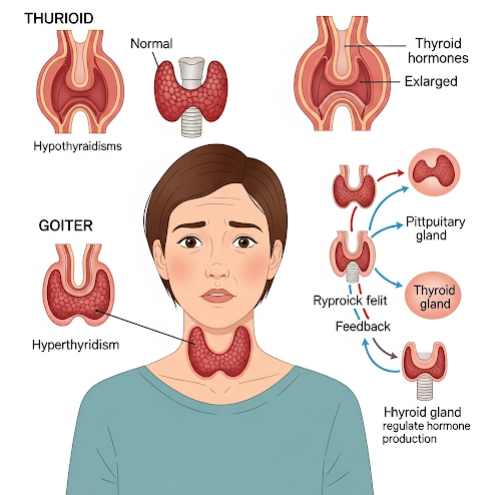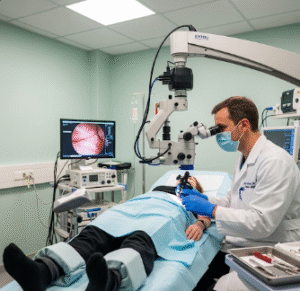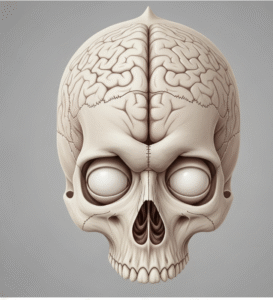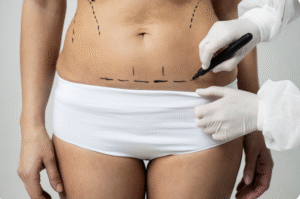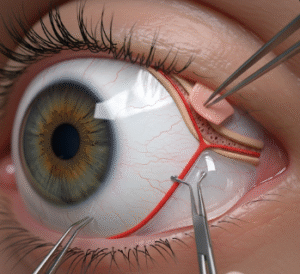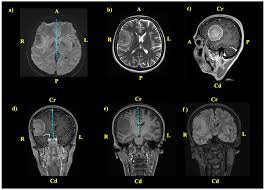Overview
Thyroid disease refers to a group of disorders affecting the thyroid gland, a butterfly-shaped organ located at the base of the neck. The thyroid plays a vital role in regulating metabolism, growth, and energy through the production of thyroid hormones (T3 and T4). Thyroid diseases can cause the gland to produce too much hormone (hyperthyroidism) or too little (hypothyroidism), as well as structural problems such as nodules or cancer. South Korea is globally recognized for its advanced diagnostic methods and effective treatments for thyroid disorders, offering both traditional and cutting-edge medical solutions.
What is Thyroid Disease?
Thyroid disease encompasses several conditions that impair the function, structure, or hormone production of the thyroid gland. The main types include:
- Hypothyroidism – underactive thyroid, producing insufficient hormones.
- Hyperthyroidism – overactive thyroid, producing excessive hormones.
- Thyroid nodules – lumps within the thyroid, often benign but sometimes cancerous.
- Goiter – enlargement of the thyroid gland.
- Thyroid cancer – malignant tumors in the thyroid tissue.
- Autoimmune thyroid disorders – such as Hashimoto’s thyroiditis and Graves’ disease.
The thyroid gland works closely with the pituitary gland and hypothalamus to maintain hormone balance. Any disruption in this axis can lead to symptoms affecting multiple organ systems.
Symptoms
Symptoms of thyroid disease vary depending on whether the gland is overactive, underactive, enlarged, or affected by nodules or cancer.
Hypothyroidism symptoms:
- Fatigue and weakness
- Weight gain despite no change in diet
- Cold intolerance
- Dry skin and brittle hair
- Slow heart rate
- Constipation
- Depression and memory problems
Hyperthyroidism symptoms:
- Unexplained weight loss
- Rapid heartbeat (palpitations)
- Heat intolerance and excessive sweating
- Anxiety, irritability, or restlessness
- Tremors in the hands or fingers
- Increased bowel movements
- Sleep difficulties
Other signs:
- Visible swelling in the neck (goiter)
- Hoarseness or difficulty swallowing
- Pain or discomfort in the throat area
Causes
The causes of thyroid disease depend on the type of disorder:
- Autoimmune diseases – Hashimoto’s thyroiditis causes hypothyroidism, while Graves’ disease causes hyperthyroidism.
- Iodine imbalance – both deficiency and excess can disrupt thyroid hormone production.
- Thyroid nodules – benign or malignant growths that can interfere with function.
- Pituitary gland disorders – which can affect thyroid-stimulating hormone (TSH) production.
- Radiation exposure – particularly to the neck or head area.
- Genetic predisposition – family history of thyroid disorders increases risk.
- Viral or bacterial infections – can cause temporary thyroid inflammation (thyroiditis).
Risk Factors
Several factors increase the likelihood of developing thyroid disease:
- Being female – women are more prone to autoimmune thyroid disorders
- Age over 50 – hormonal changes can influence thyroid function
- Family history of thyroid disease
- History of other autoimmune diseases
- Past exposure to radiation
- Pregnancy and postpartum period (increased risk for postpartum thyroiditis)
- Diet low or high in iodine
Complications
If untreated, thyroid disease can cause serious complications:
For hypothyroidism: Myxedema (life-threatening severe hypothyroidism), infertility, heart problems, developmental delays in children.
For hyperthyroidism: Thyroid storm (sudden, severe symptoms), osteoporosis, atrial fibrillation, heart failure.
For nodules/cancer: Difficulty breathing or swallowing, spread of cancer to other areas.
Pregnancy-related issues: Increased risk of miscarriage, preterm birth, and developmental issues in the baby.
Prevention
While not all thyroid diseases can be prevented, certain measures can reduce the risk:
- Maintain an adequate but not excessive intake of iodine through a balanced diet.
- Regular medical check-ups, especially if you have a family history.
- Monitor for early symptoms and seek prompt medical advice.
- Minimize unnecessary radiation exposure to the head and neck.
- Manage stress and maintain a healthy immune system.
- Follow up with a doctor after pregnancy to monitor postpartum thyroid function.
Treatment Options in Korea
South Korea is a leader in thyroid disease diagnosis and treatment, offering advanced medical technologies, experienced specialists, and comprehensive care.
Diagnosis:
- Blood tests – TSH, T3, T4, and thyroid antibody tests
- Ultrasound – for detecting nodules, cysts, and gland size changes
- Radioactive iodine uptake test – evaluates thyroid activity
- Fine-needle aspiration biopsy – to determine if nodules are cancerous
Medical Treatments:
- Thyroid hormone replacement therapy – for hypothyroidism (levothyroxine)
- Anti-thyroid medications – for hyperthyroidism (methimazole, propylthiouracil)
- Beta-blockers – to manage symptoms like rapid heartbeat in hyperthyroidism
Surgical or Advanced Therapies:
- Thyroidectomy – partial or total removal of the thyroid, often done with minimally invasive techniques in Korea
- Radioactive iodine therapy – to shrink or destroy overactive thyroid tissue
- Minimally invasive robotic surgery – offered in leading Korean hospitals for precise, scar-minimizing outcomes
Rehabilitation and Support:
- Regular hormone level monitoring and medication adjustment
- Nutritional counseling for optimal iodine balance
- Support groups and counseling for chronic thyroid conditions
- Ongoing follow-ups to prevent recurrence or manage lifelong hormone therapy

